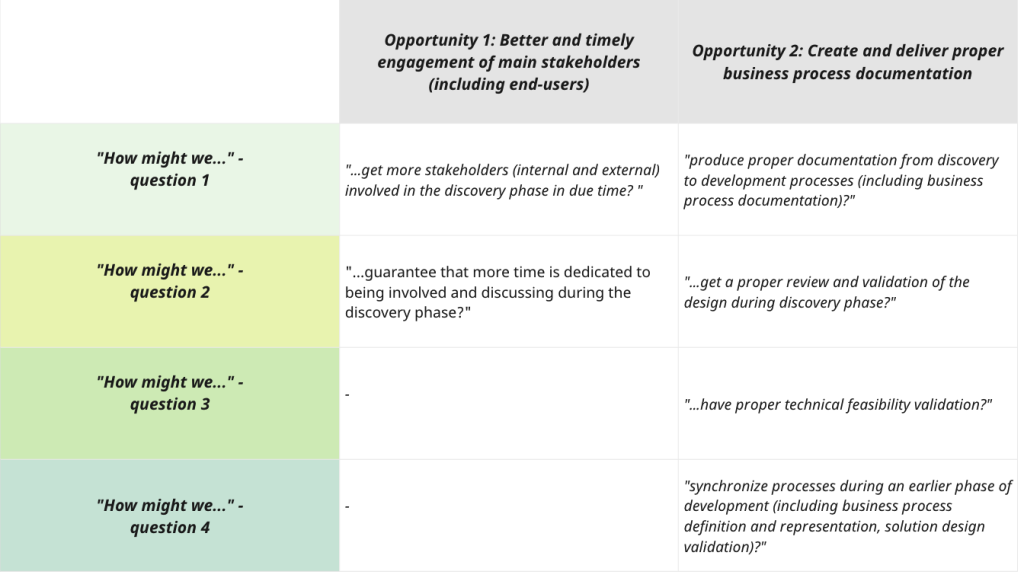
Using service design methods to improve discovery process in an e-learning business
The steady rise in the number of students, courses, trainers, and service providers in the e-learning sector each year signifies a permanent shift in the way knowledge is acquired in the coming decades. It also consolidates continuous learning as a daily habit for a permanent life and work-changing environment. By that alone, a great business opportunity is being created for e-learning service providers. But how to support efficient and customer-centric product development in this business?
The combination of main product development-related methodologies can be an answer. The objective is to bridge existing gaps in the product development process, ensuring a seamless transition from pain points towards ideation, and finally, product delivery. Key goals involve mitigating confirmation bias, aligning with user-proofed solutions, and delivering a comprehensive service concept. Those goals support the ultimate benefits to business and customer.
What methodologies could come along together?
A master’s thesis conducted at Turku University of Applied Sciences (Abreu-Romu, 2023), explored to find synergies and integrate design thinking, service design, lean, and agile methodologies for optimal product development. The study highlights the critical role of continuous customer feedback in the discovery process and explores how design thinking and service design support lean and agile product development. The research method, guided by the Double Diamond model, emphasises the gaps in product development in two main aspects, considered opportunities to be tackled: improve stakeholders’ engagement and create and deliver proper business process documentation.

The main questions to be answered revolve around collaboration in product management and development connecting various methodologies and frameworks, guided by a human-centric approach. To support this mindset shift to support the product development process, in the thesis work, tech product development gurus (Olsen, 2015; Cagan, 2017; Torres, 2021) advocate for a cultural shift towards continuous innovation, open-mindedness, empowerment, and deep understanding of customer pains and needs.
How to advocate and propagate such methodologies?
One would be surprised, but the best way may be by educating and evangelising different experts in different roles to work even more collaboratively and with a customer-centric approach mindset. To support that, the thesis culminates with a delivery of a handbook that promotes those methodologies in a step-by-step process. Acknowledging the transformative impact of service design methods and advocating for a user-centric mindset shift and a combined approach of methodologies to benefit product and development teams in their work. Even more surprising, it is the idea to use the actual product (e-learning training library) to insert the contents of the handbook as a tutorial on how to disseminate those methodologies internally, along with other initiatives such as workshops, discussion forums, and more.
The key takeaways in the thesis work journey can be stated as:
- Service design is not merely a theoretical concept but a practical approach with the potential to drive better products, foster innovation, contribute to product fit and meet customer needs.
- Service design should not be kept to the knowledge of a single group of experts. Collaboration and knowledge-sharing among various stakeholders, including designers, customers, and internal teams, is essential for achieving successful service transformations.
- Service design and design thinking should be part of the main methodologies that guide product development.
It is through collaboration and problem examination that a deep understanding of customer needs and pain points can be developed, leading to the co-creation of services that truly resonate with users.
References
Cagan, M. (2017). Inspired: How to create tech products customers love. John Wiley Sons Inc.
Olsen, D. (2015). The Lean Product Playbook: How to innovate with minimum viable products and rapid customer feedback. John Wiley Sons Inc.
Torres, T. (2021). Continuous Discovery Habits. Product Talk LLC.
Photo credit: Canva
Table credit: Abreu-Romu (2023)